Out of everything you may encounter while camping and hiking in the wilderness, bears are one that many people feel a strong sense of fear towards.
While this fear is perfectly healthy, and can actually be one of the best protectors, it’s worth reading up on the right information to know what to do if you ever run into a bear while camping and hiking.
The best move is to actually learn how to avoid bears. It can be done, but they can also often surprise you. We’re walking through their homes after all, so it makes sense that sometimes they’ll be there, hanging out or eating.
There are a lot of ways to avoid bears as well as manage the situation if they show up. Let’s make sure you have the right information to keep everyone’s time in the backcountry as safe as possible!
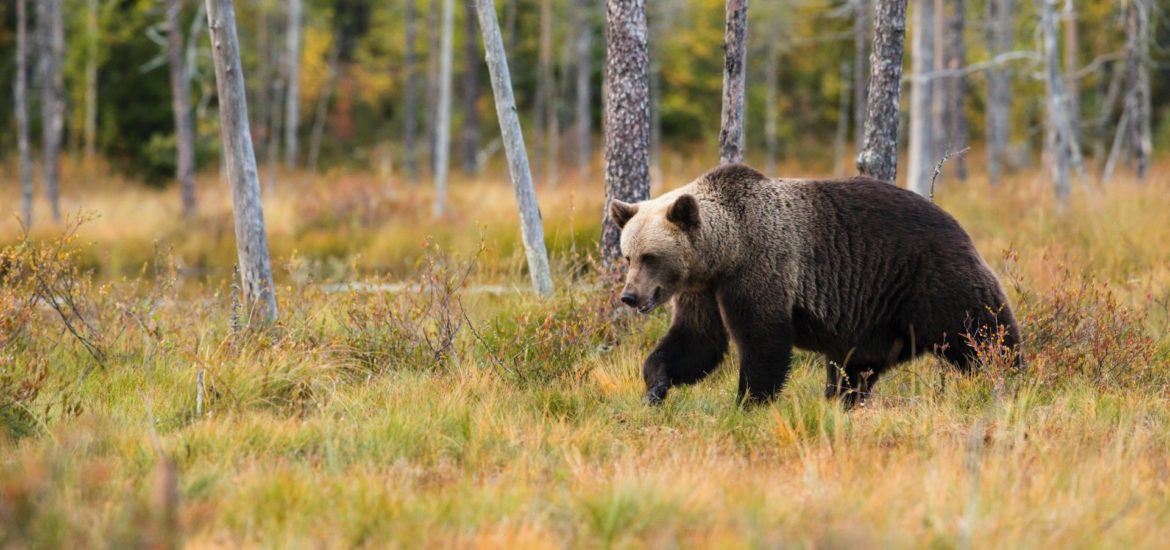
Develop Situational Awareness
The best possible thing you can do to avoid encountering a bear is to simply be aware.
This sounds a lot easier than it actually is in practice. It means planning ahead, acting intentionally, and always taking preventative measures.
Monitor Trail Status
Before you head out, read up on the trail that you’re going to be on. If there are a lot of recent comments about bears, it’s likely that you’ll encounter one as well.
The internet is a great resource for gaining the current information and status of any trails you want to visit. Trail and park forums and bulletin boards are great sources of up-to-date information.
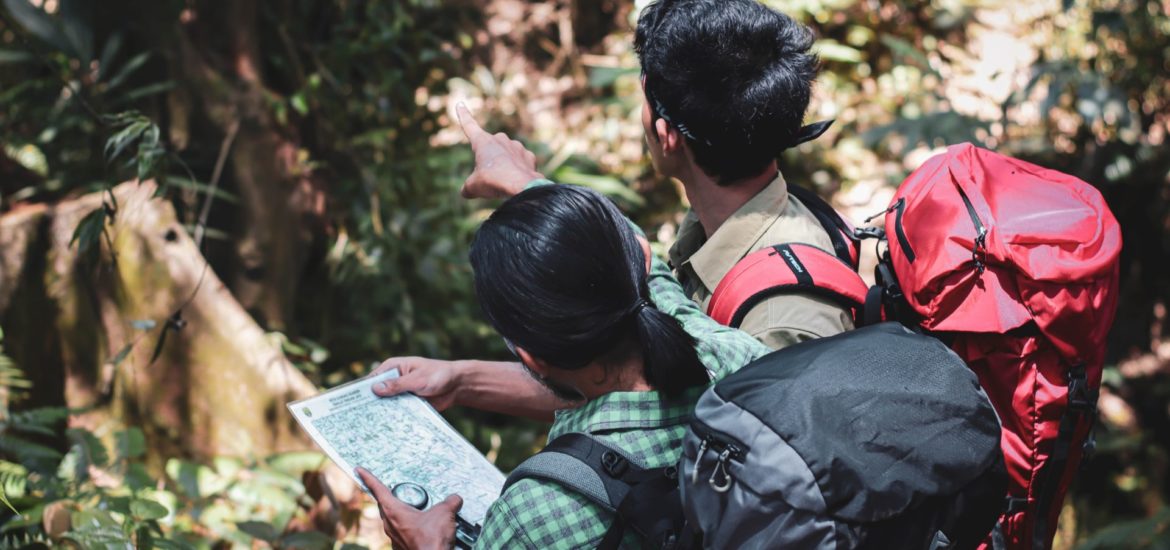
Understand the Seasonality of Bears
Next, keep in mind the time of year. Bears aren’t very active in the winter, but can still be encountered.
- Bears are only partial hibernators and will come out to get some more food or just stretch their legs occasionally.
- In the fall, bears are preparing for this partial hibernation and are looking for food constantly.
So, if you’re planning on hiking a stream that has a ton of salmon running up it, maybe reconsider where you should hike. It would be a very likely possibility to run into a bear fishing at what is equivalent to their local diner or grocery store.
Camping in Bear Country
Knowing how to properly camp in bear territory is a must for anyone that wants to go into the woods year-round or all across the world.
It’s much more than just taking care when eating or preparing your dinner. Although, cooking and eating in designated areas is one of the best ways to protect yourself while you are asleep.
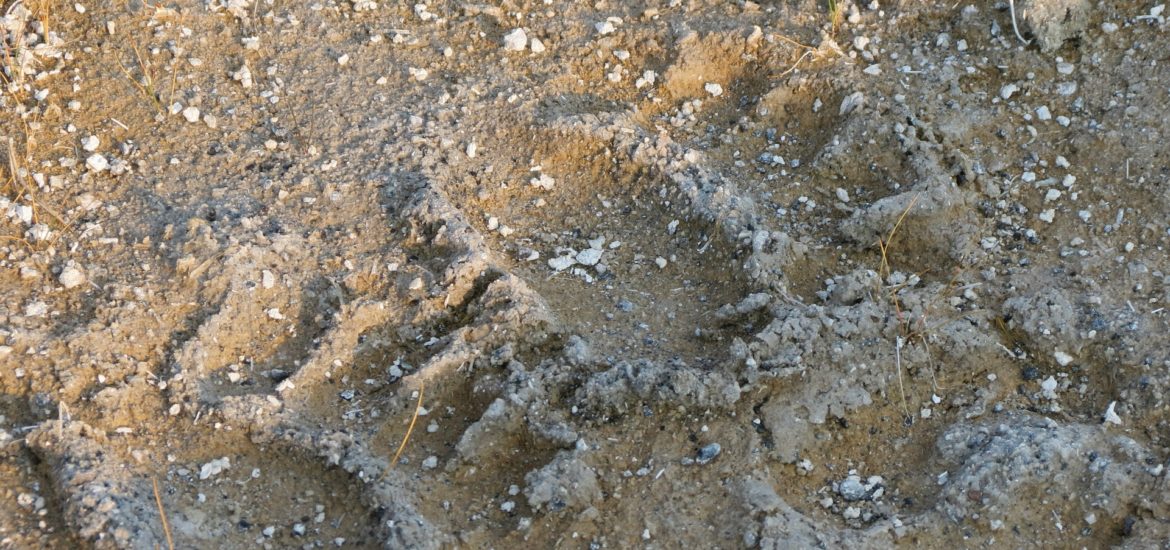
Look for Signs of Bear Activity
Being bear-aware means paying attention to your own actions as well as looking for signs of others.
- If you see fresh scat or any kind of digging or bear tracks, it’s best to not keep heading in the direction you are going.
These signs will tell you that bears come through often, and they like to stick to their known paths, just like all of us do.
- If there’s a fresh kill or scavenged meat, get out of the area immediately rather than risk waiting for a bear to appear.
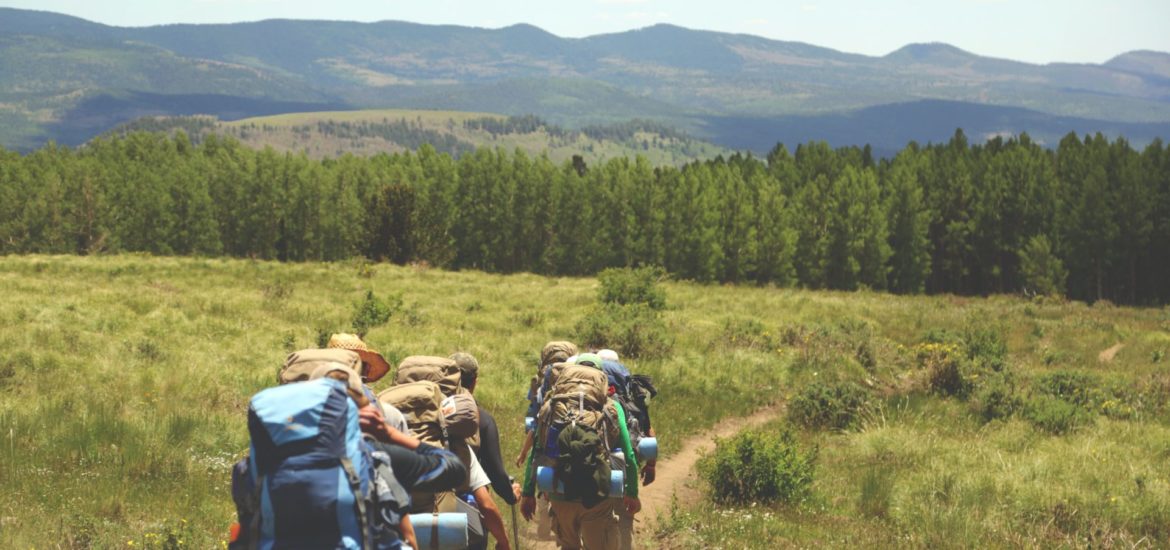
Hiking in a Group in Bear Country
With bears around, numbers are in your favour. Interestingly, there are barely any recorded bear attacks where there were three or more humans present.
So, why do bears choose not to attack a large group of people?
- Bears don’t want to pick a fight they might lose, and if there are more of us, they think they’ll lose.
This isn’t to say “never go alone”, but just to take a group when you can. If you’re alone, you’ll just have to use other strategies to keep yourself safe.
In reality, bears don’t want to attack anyone. They aren’t vicious killers, they’re just protective of their young and their territory. So, make it known that you aren’t a threat and they will likely back off.
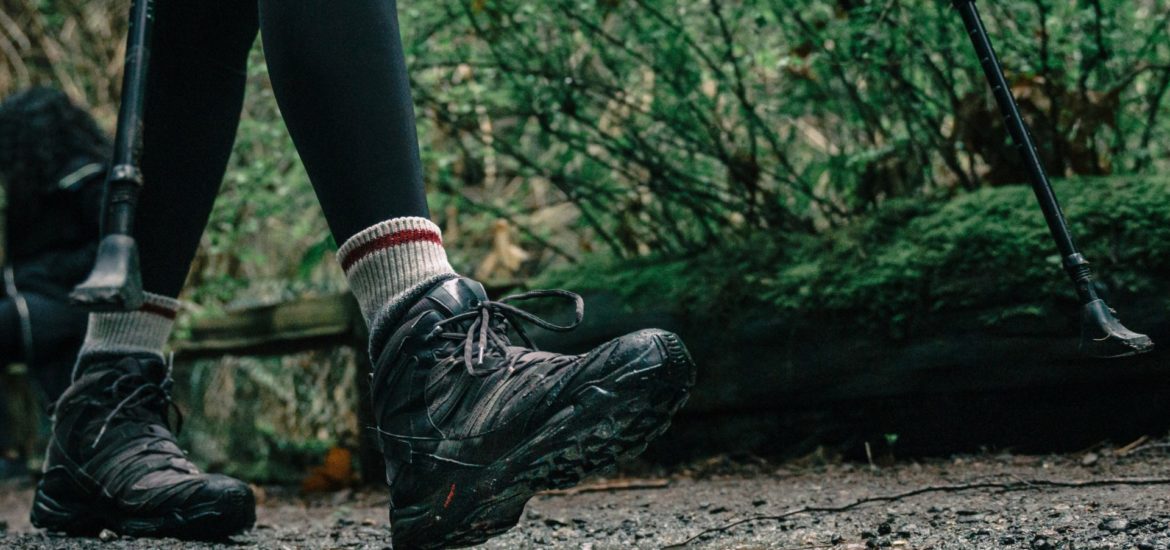
Making Your Presence Known To Bears
No one does well when they’re surprised, and that is the same for bears. It’s highly unlikely that you’ll surprise them as they are always listening for every sign of danger.
That being said, it’s possible and people have done it before, and it will happen again. It’s best to let bears know you’re around and that you aren’t trying to sneak up on them and make an attack.
A lot of people choose to wear bear bells on a hiking stick or hike with their dog that is incredibly vocal. These are great moves if noise is your goal, but sometimes dogs can actually be an issue with bears.
- Dogs tend to antagonize bears, and if dogs aren’t well trained, it can be a disaster so be mindful about bringing dogs into bear country.
Whistles and air horns are good for when you encounter a bear and want to try to scare it off. Loud noises can often mean danger, so most bears will run from a quick air horn blast.
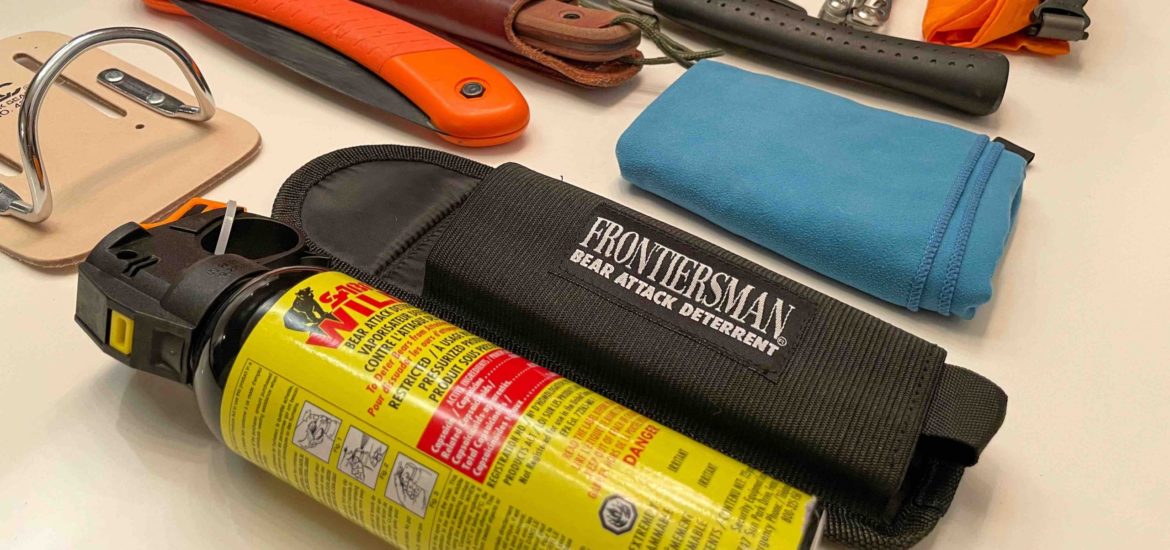
Carry Deterrent in Bear Country
The most effective and proven-to-work method of protecting yourself in the case of a bear attack is by deploying bear spray.
In fact, a published paper on “the efficacy of bear deterrent spray in Alaska” cited 98% of people carrying bear spray were uninjured by bears during a close-range encounter [Reference].
That’s a staggering statistic and proves bear spray is absolutely essential while camping and hiking in bear country.
How Does Bear Spray Work?
Bear spray is basically pepper spray, or mace, but much more potent.
When a canister of bear spray is deployed, a concentrate spray fog is directed into the eyes, nose, and mouth of a charging bear.
- Bear spray is to be used in close-range encounters when you are sure a bear is aggressively charging towards you
- The effective range of bear spray is up to 30 feet, or 9 meters.
- Bear spray will immediately cause the bear to turn around and leave, giving you enough time to get out of the area.
- Bear spray is non-lethal and the bear will eventually recover from being sprayed.
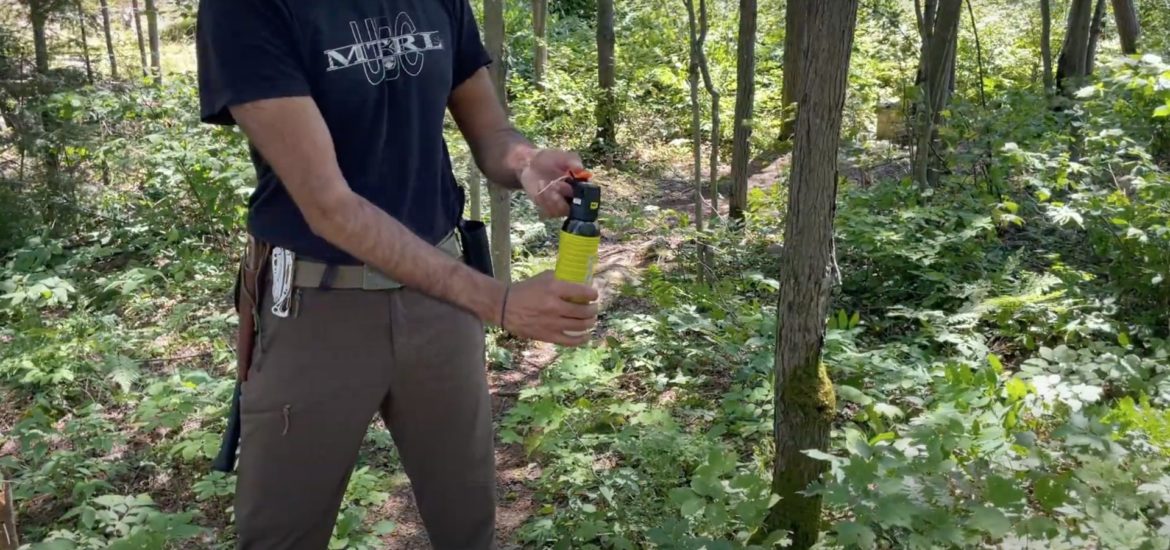
Should You Carry a Firearm or Bear Spray in Bear Country?
One of the most common thinking errors that people have is the need to bring a firearm out into the backcountry. But, should you bring a gun to protect yourself in bear country?
Well, bears are huge, strong creatures that can, and will, fight through a non-lethal gunshot wound when trying to protect their young.
- If you fire a round at a bear without killing it instantly, it won’t stop the bear, it will only make it more upset!
No matter your confidence in your shot, there are very few people on this planet who could hit a moving target at close range under such extreme pressure with little to no notice.
Bear spray is proven to be more effective than a firearm. Just be careful that you always have the safety tab in place, as getting bear sprayed can be a miserable experience that I have seen happen one too many times.
This article contains affiliate links, which help support this blog at no cost to you!
